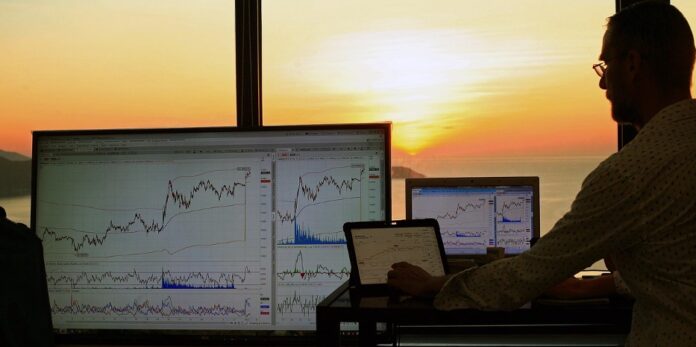Forex trading in South Africa has evolved rapidly in recent years. What was once an activity limited to a few professionals is now accessible to a wider audience thanks to technology. The availability of real-time data and automated tools has transformed the way traders analyse markets and manage positions. With these innovations, decisions that once required long hours of monitoring can now be executed with precision in seconds.
One of the platforms familiar to many South African traders is HFM. While traders select platforms based on their own strategies, the shift toward real-time price feeds and automation is now standard across the industry. These features have made forex trading more dynamic, data-driven, and efficient for participants at all levels.
The Importance of Real-Time Data
In a market as fast-moving as forex, timing is everything. Real-time data gives South African traders the ability to respond to market changes instantly, rather than working with delayed reports that may already be outdated. When every second counts, live feeds of currency movements, economic announcements, and market news provide a significant advantage.
The South African rand, being one of the most traded emerging market currencies, is often influenced by shifts in commodities, political news, and international sentiment. Real-time access allows traders in Johannesburg, Cape Town, and Durban to see these movements unfold immediately, giving them an edge when making decisions.
How Automation Simplifies Trading
Automation has become equally important. By using automated systems or algorithms, traders can set predefined rules for entering and exiting trades. This means strategies are executed consistently without the emotional influence of fear or greed. For South Africans balancing trading with other responsibilities, automation ensures they do not miss opportunities when away from the screen.
For more advanced market participants, automation helps in scaling strategies. Large numbers of trades can be executed with accuracy, something that would be impossible manually. This approach adds efficiency while maintaining discipline, which is crucial in a volatile environment.
Advantages for South African Traders
The combination of real-time data and automation brings benefits that match the needs of traders in the country:
- Faster reaction to both local and global events
- Lower reliance on constant manual monitoring
- Improved consistency through rule-based strategies
- Enhanced risk management with automated controls
- Accessibility for part-time and full-time traders alike
These advantages show why many South Africans now consider these tools a necessity rather than an option.
Linking Global Trends With Local Markets
South Africa’s economy is closely tied to international markets through commodities like gold, platinum, and oil. Movements in these sectors often influence the rand, which in turn affects forex trading. Real-time data ensures traders can track these shifts instantly.
Automation complements this by enabling strategies that connect global developments with local currency performance. For example, when commodity prices rise, automated systems can trigger positions on the rand that align with historical patterns, giving traders a structured way to benefit from these moves.
Risk Management Through Technology
Risk management is essential for success in forex. Real-time alerts and automation make it easier to control potential losses. Stop-loss orders, trailing stops, and position-sizing tools can be programmed in advance, ensuring traders in South Africa protect their capital even during unexpected volatility.
This is particularly valuable when trading the rand, which is known for its sharp reactions to political or economic announcements. Having automated safeguards in place allows traders to participate confidently while reducing exposure to large swings.
Growing Accessibility Through Mobile Platforms
Another important development is the rise of mobile trading. With mobile penetration high across South Africa, traders are increasingly managing accounts through smartphones. Real-time feeds and automated execution are now integrated into mobile platforms, making trading more flexible and convenient.
This accessibility also supports financial inclusion. People who may not have access to traditional financial institutions can still participate in global currency markets with smaller amounts of capital, supported by technology that keeps them informed and protected.
Education and Confidence Building
While technology provides the tools, traders still need the knowledge to use them effectively. Many platforms now offer educational resources that explain how to interpret real-time data and set up automated systems. For South African beginners, this is an opportunity to build skills gradually while using tools designed to simplify decision-making.
With time, traders gain confidence by understanding both the technical side of automation and the fundamentals that drive global currency markets. This balance is what helps transform beginners into disciplined, long-term participants.
Looking Ahead for South African Traders
Real-time data and automation are no longer optional in forex trading. They are shaping how markets are accessed, analysed, and traded every day. For South African traders, these tools provide the ability to compete on the same level as participants in larger financial hubs around the world.
As global markets remain interconnected, the traders who combine data-driven insights with automated discipline will be best placed to adapt. The future of forex trading in South Africa lies in leveraging these innovations while maintaining a clear focus on education, risk control, and consistent practice.
Conclusion
The revolution brought by real-time data and automation has redefined forex trading for South Africans. These tools have made it possible to react faster, trade more efficiently, and manage risks with greater precision. Platforms such as HFM and others offering these features ensure that traders are not left behind in a competitive global market.
For individuals in South Africa, success now depends not only on strategy but also on how effectively technology is used. By embracing real-time insights and automation, traders can build a disciplined approach that supports long-term growth in the dynamic world of forex.



